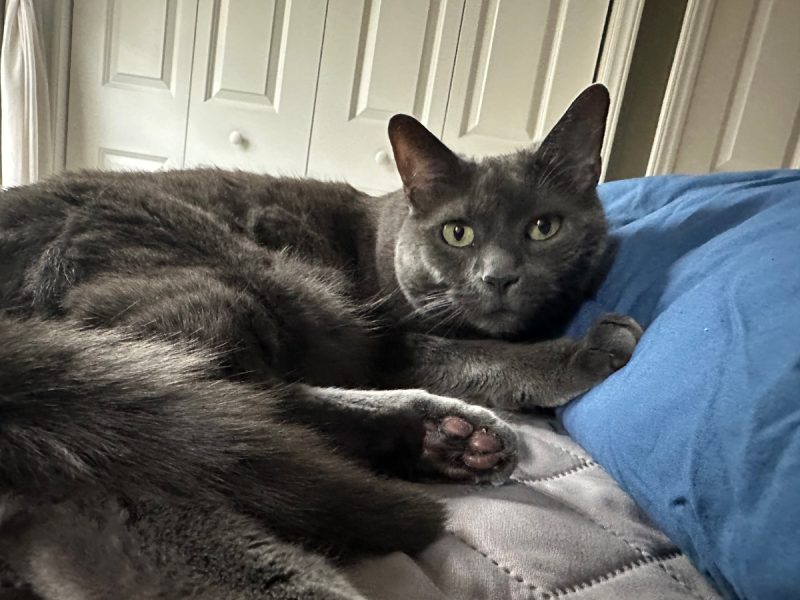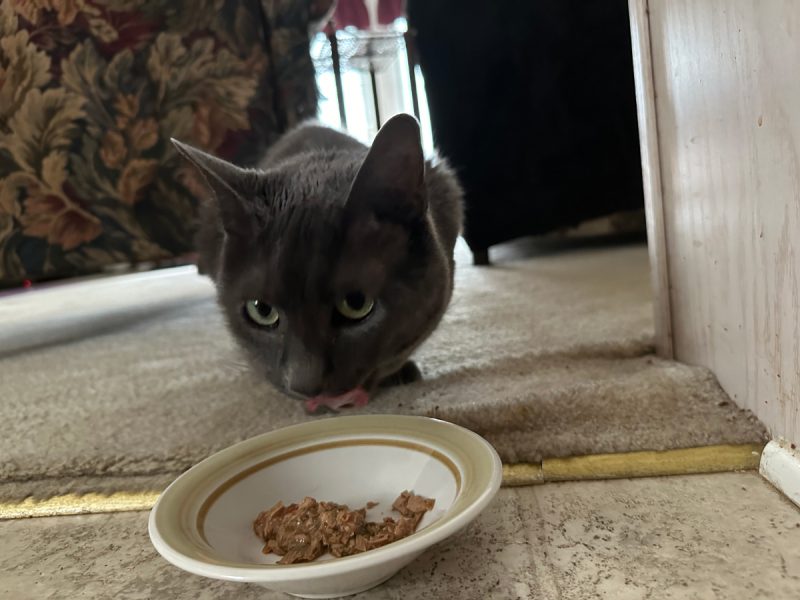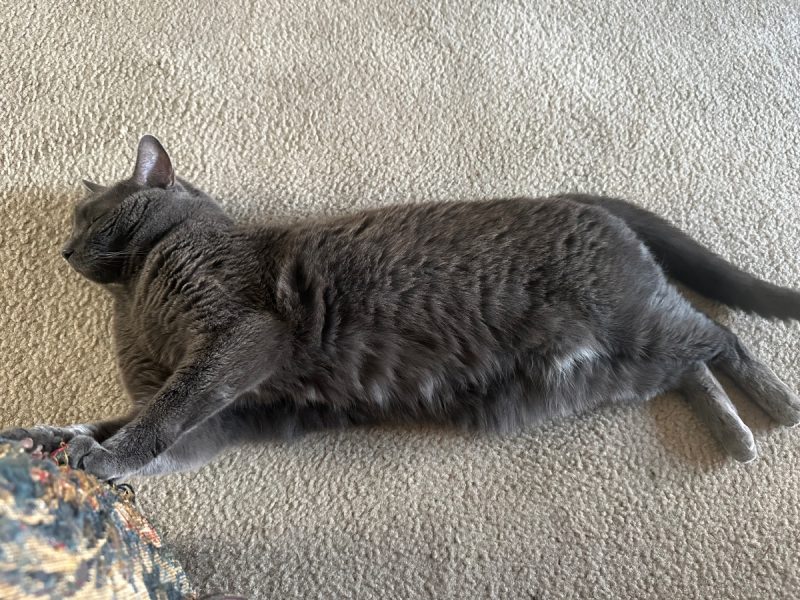The post How Movies and Television Portray Cats: Stereotypes & Olga’s Nature by Christopher Bays appeared first on Catster. Copying over entire articles infringes on copyright laws. You may not be aware of it, but all of these articles were assigned, contracted and paid for, so they aren't considered public domain. However, we appreciate that you like the article and would love it if you continued sharing just the first paragraph of an article, then linking out to the rest of the piece on Catster.com.
Hi, I’m Christopher! Read my introduction to learn more about me and my silly Russian Blue cat, Olga.
Before a friend gave me a Siamese cat several years ago, I knew little about them and had no idea how vocal they were. I met several people who thought they were meaner and more devious than other breeds, which isn’t accurate, but I don’t think they formed their opinions from their personal experiences.
Cartoon Animals
When they were kids, they probably watched Lady and the Tramp and didn’t appreciate how Am and Si treated the dogs. Movies and television programs influence us more than we would like to admit, and Disney, in particular, has had a profound impact on our understanding of animals.
The writers and producers have good intentions, and it’s not their fault that we make assumptions based on the actions of animated cats and dogs. Some blame 101 Dalmatians for an increase in overbreeding and deafness in Dalmatians, but the film didn’t contain subliminal messages encouraging everyone to adopt and mistreat a high-energy breed.
Making Siamese look like manipulative fiends or portraying Dalmatians as pets any family can own doesn’t bother me. Cartoonists and writers have an artistic license to exaggerate; they’re not bound by breed standards or veterinary evidence. However, I don’t like seeing live-action movies with cats drinking milk.

Milk and Hollywood Cats
Most cats are lactose intolerant, but characters who find or rescue cats usually give them milk even in today’s shows and films. I understand that it is a staple in most homes, and unprepared, new owners are unlikely to have cat food. Because of the fat and protein, cats generally like drinking milk until they get stomach aches or diarrhea.
Since most cats don’t get seriously ill from milk, it’s better for them to drink it in films than eat a loaf of garlic bread or a bowl of raisins. Olga isn’t interested in dairy products and would ignore a bowl of milk if she escaped and was rescued by a thoughtful neighbor. She can be affectionate and playful but also displays the stereotypical behavior of “evil cats” in the movies.

Olga’s Similarity to Church
If she were resurrected like Church in Pet Sematary, Olga would probably toss a dead mouse into my bathtub. Even though Church, played by seven cats, was a British Shorthair, he’s one of the few movie cats that slightly resembles Olga. When he hisses in the film, he reminds me of her. Olga only hisses at me when I return from a trip, and I feel honored that I’m the only one who has seen her scary side.
She likes hiding in the dark, surprising me with quick attacks, and hovering over me when I sleep late, just like the fictional felines in films. She makes the stereotypes seem more plausible but is more manipulative and violent than my Siamese cat. Although Olga would be an excellent horror film cat, she wouldn’t enjoy being around strange people or shooting a movie away from home.
Films and television shows have portrayed cats as evil, insane, playful, indifferent, and ignorant, which isn’t a problem, but I’m surprised by how many people believe what they see on a screen.

- Read his previous article: Words Your Cat Understands: Olga’s Language Skills
The post How Movies and Television Portray Cats: Stereotypes & Olga’s Nature by Christopher Bays appeared first on Catster. Copying over entire articles infringes on copyright laws. You may not be aware of it, but all of these articles were assigned, contracted and paid for, so they aren't considered public domain. However, we appreciate that you like the article and would love it if you continued sharing just the first paragraph of an article, then linking out to the rest of the piece on Catster.com.
from Catster https://ift.tt/wlNSnEd
